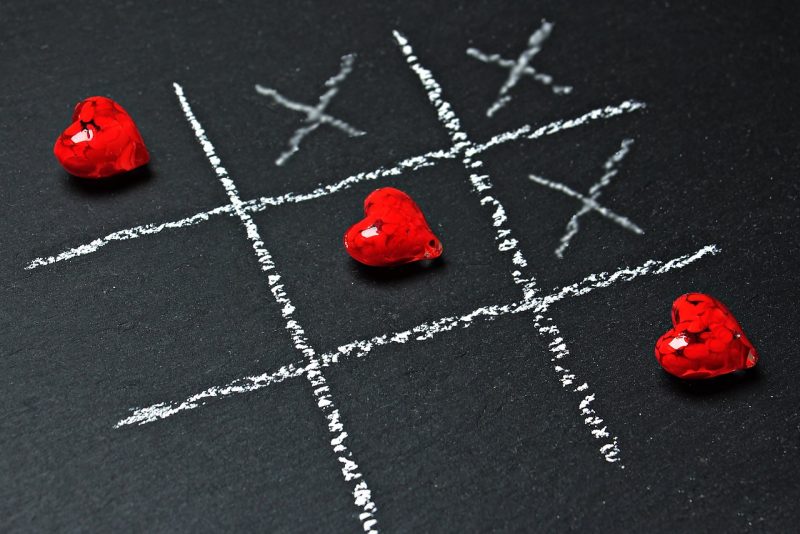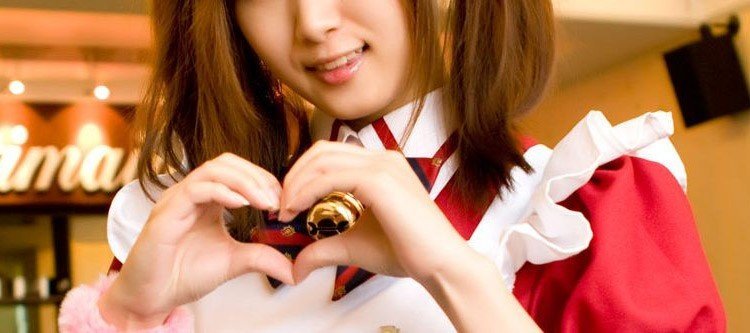Do you know what it means kokoro [心]? It's a very simple word in the Japanese language that literally means heart. What few know is that this ideogram [心] and the word heart in Japanese, is much deeper than you imagine. In this article, we will try to understand all the meanings and uses of the word kokoro.
The character of kokoro [心] does not just mean heart, but also means mind and spirit. It also serves as an enigma and meaning as well as serving as radical of many other Japanese ideograms. There is also a variant of the kanji for heart which is [忄].

Índice de Conteúdo
The deep meaning of kokoro
The ideogram that emerged from Chinese [心] portrayed in China the heart organ itself. The ideogram gained this series of meanings (mind, soul, spirit) because the Chinese thought psychological functions, feelings and intentions came from the heart. For this reason kokoro refers to all human activities that affect the outside world through intention, emotion and intellect.
For the Japanese heart, mind, spirit and soul are indivisible elements of each other. The big problem with trying to translate the word kokoro into Portuguese is that we make divisions that simply don't exist in Japanese. Try to put in your mind that these meanings are only one in the Japanese language.
Kokoro is often discussed in various areas by writers, artists, fighters, mystics, scientists, programmers, financiers and in all other academic areas in Japan. A kendo sensei stated that it is an obligation of every kendo fighter to know the meaning and essence of kokoro, which is also linked to mental, emotional and physical strength.
Of course, there are other Japanese words for mind, spirit, and soul. But kokoro can be used and express these meanings according to the situation. Someone who says your kokoro is dirty meant to say that your mind is polluted, or that you are a selfish person. When your heart dances you are excited, when your heart changes you are changing your thoughts, that's the idea of kokoro.

The heart, mind and spirit of kokoro [心]
The Chinese reading of the character [心] is often shin and can be present in several other words related to heart, mind and spirit. There is still another Japanese word that has the same 3 meanings (mind, spirit, heart) which is the known ki [気] which gives the idea of an energetic word.
We use the ki [気] to ask how the person is doing, if they are feeling well, to talk about feelings and even things related to physical and spiritual energy. the ideogram ki [気] is mostly used in words involving nature, disposition, mood, intentions, motivation and environment.
Meanwhile, the character of kokoro [心] is present in words such as mentality, psychology, state of mind, mental state, diseases involving heart, anxiety and many others. In addition to numerous ideograms that use the heart root and have meanings that slightly resemble kokoro.
Below we will see some alternative words and synonyms that can mean mind, soul and spirit:
Responsive Table: Scroll the table sideways with your finger >>
| Portuguese | Japanese | Romaji |
| soul and spirit | 魂 | tamashi |
| soul, spirit | 霊魂 | reikon |
| Soul; spirit; ghost | 霊 | rei |
| Spirit; nymph; energy; force; semen | 精 | sei |
| Holy Spirit | 聖霊 | seirei |
| Brain; mind | 脳 | nou |
| Head; mind | 頭 | atama |
The article is still halfway through, but we recommend also reading:
Do the Japanese follow the heart or the mind?
Given that kokoro can refer to emotions as well as logic and reason, it becomes difficult to understand western expressions like follow your heart. Such an all-encompassing word shows how the Japanese think and differentiate their feelings from their mind.
It all makes sense, since the literal heart has nothing to do with our feelings and desires, the Japanese manage to keep the balance of these things, they don't differentiate the heart from the mind, allowing to be rational and sentimental at the same time.
The word kokoro helps the Japanese understand both the heart and the mind, spirit, soul, psyche and consciousness. There is even a Japanese expression that explores this doubt in your thoughts. They often ask themselves:
- 心の準備はできていますか?
- Kokoro no jubi wa dekiteimasu ka?
- Is your heart ready?
- Are you mentally ready?

Words that use kokoro stem [心]
In case you still don't know what a radical is, in short it's simply a piece of a Japanese ideogram. The most complex ideograms usually have several other ideograms inside them. If you want to know more, read our article about radicals. Notice below how the ideograms with a radical of [心] have similar readings:
Note: Be careful not to think that these kanji mean all that, sometimes it's just a representation of other complete words that use this ideogram.
Responsive Table: Scroll the table sideways with your finger >>
| Portuguese | Japanese | Romaji |
| Definition, Inevitable, certain, invariably | 必 | hitsu |
| Love passion | 恋 | koi |
| intention, will, goodness, aim | 志 | kokorozashi |
| wick, marrow, clamp, lead | 芯 | shin |
| penetrate, dive | 沁 | shin; shi |
| Shame; dishonor; disgrace; embarrassment | 恥 | haji |
| Think; believe; consider; to remember | 思 | shi; omo.u |

Other ways to say heart in Japanese
The word kokoro is often more figurative. There are other ways of referring to the literal heart as well as the figurative heart, as well as the mind, spirit, and soul. Let's leave a list of related words below:
Responsive Table: Scroll the table sideways with your finger >>
| Portuguese | Japanese | Romaji |
| Heart (organ, anatomical) | 心臓 | shinzou |
| Mind; spirit; soul; heart | 精神 | seishin |
| heart center; middle of heart | 中心 | chuushin |
| English heart | ハート | haato |
| Core; heart (of matter) | 核心 | kakushin |
| Spirit; heart; disposition | 意気 | iki |
| Feelings | 気持ち | kimochi |
| Innermost feelings, disposition, heart | 心根 | kokorone |
| chest, breasts, heart | 胸 | mune |
| Psychology (lit: study of the logic of the heart) | 心理学 | shinrigaku |
Note the word chest in Japanese, it is often used to refer to feelings in the heart. Just like when we say that the chest hurt referring to the heart. As much as we have different languages and cultures, some things never change. I hope you enjoyed the article, if you liked it share and leave your comments.







